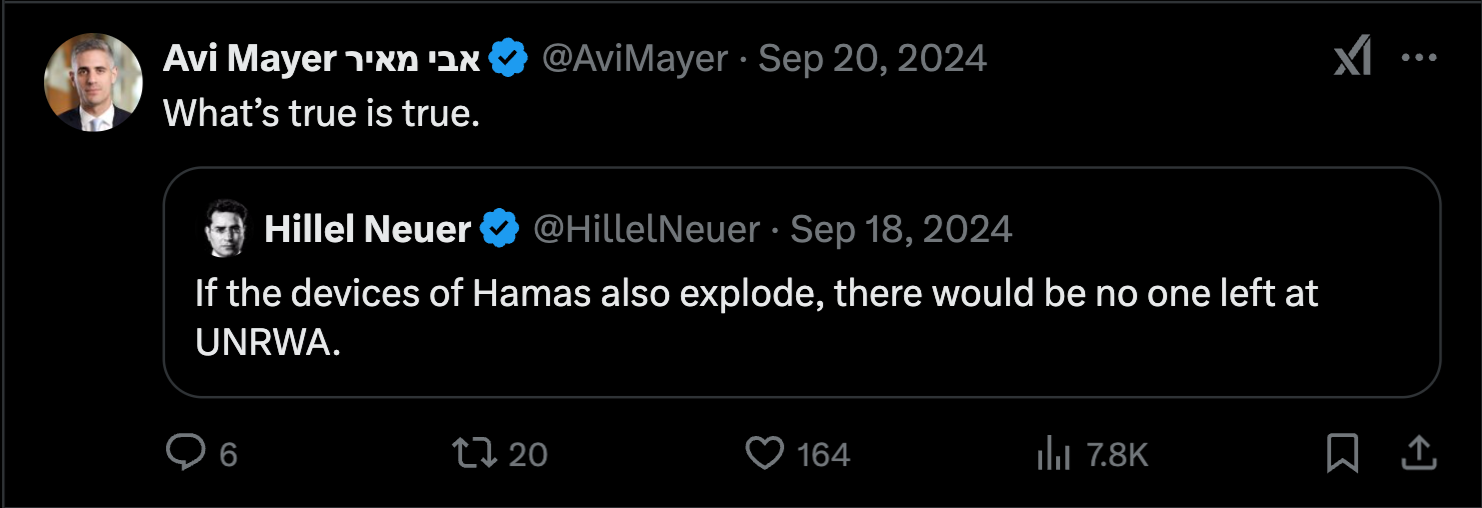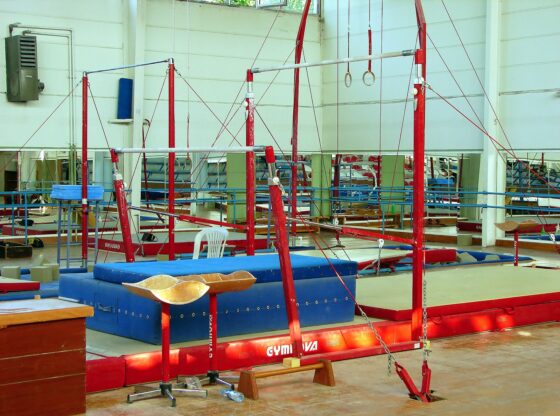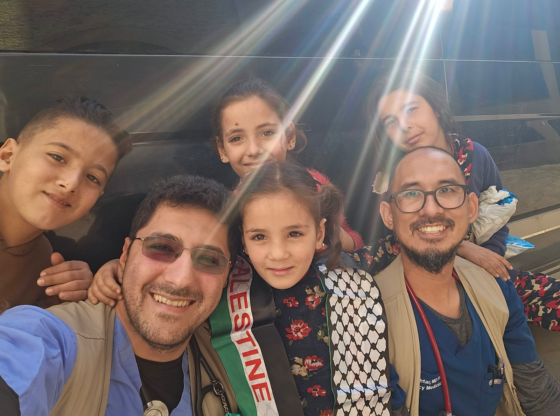On Feb. 12, the Center for Middle East Studies (ICRS) of the Korbel school made a mistake. Students, alumni and faculty all gathered that night to listen to the first of a two-part series titled “Media in Wartime,” focused on providing community members with a nuanced analysis of journalism in the Middle East.
According to how the event was presented in the introductory remarks, the series is supposed to help us understand “what the broader role of journalism should be in times of conflict,” said Dean Mayer Fritz.
The first part of the mistake lies in failing to accurately portray the guest who came to speak. Avi Mayer, the former editor-in-chief of the Jerusalem Post, was presented to the crowd as a journalist, but his minimal experience in the field — a single year — was only acknowledged by Mayer and not by those who put on the event. They also failed to mention his past work in positions associated with a high degree of bias.
One student even asked him how traditional media is to “navigate a landscape in which expertise and nuance has been supplanted by vitriol?” A valid question to someone who is perceived to be a seasoned media professional, but a quite ironic question when his behavior on X, formerly known as Twitter, is scrutinized — a point I will touch on later.
A glance at his LinkedIn profile shows us that apart from a modest one-year-long tenure as the editor-in-chief of the Jerusalem Post, he has no other extensive experience as a journalist. In fact, he has almost double the experience as a spokesperson for the Israeli Defense Force, the military of a government that Human Rights Watch, Amnesty International, Doctors without Borders, the ECCHR and numerous other human rights organizations have accused of genocide against the Palestinians.
When asked to comment on the situation after the event, Michelin Ishay — professor at Korbel, director of the ICRS and one of the moderators that night— stated that in the advertising of the event, Avi Mayer “was never identified as a journalist, let alone a distinguished one.” Yet in her introductory remarks at the event, she noted how “it is always a pleasure to have journalists of this caliber… discuss with us important issues in the Middle East.”
In all fairness, she was referring to the next speaker as well, someone with over 20 years of experience as a journalist, who has worked in the newsrooms of SkyNews, NBC News and the Chicago Tribune. His name is Mohamed Moawad, and he is the current managing editor of Al-Jazeera News and has been for over seven years. He will be on a panel hosted by ICRS in April.
According to Ahmed Abdrabou, professor at Korbel and one of the moderators for the series, these two guests were chosen out of convenience — both are having their airfare paid for by conferences taking place in Denver.
However, those who put on the event still made a choice to ignore the blatant differences in their backgrounds.
Moawad is an objectively seasoned journalist, and hosting Mayer — someone whose career has mostly consisted of public relations jobs — in the same series as him is not only insulting to Moawad himself but insulting to the profession of journalism as a whole. More importantly, it is insulting to community members, students and faculty who expect the best from an institution that we all devote a significant amount of energy, even money, towards.
But don’t just take my word for it. Mayer himself had plenty to say about his lackluster experience: “As you might have surmised, I did not come from a journalistic background when I took [the job as editor-in-chief]. I worked for a series of nonprofits and advocacy groups.”
His remark concerning his experience working with advocacy groups is important, as it indicates a degree of bias that is hard to ignore. At no point during the event was this aspect of his background discussed, which is a shame, as it provides crucial context that greatly influences how the attendees would have digested the information he provided.
Along with failing to accurately represent the guest speaker, they also let Mayer make wildly untrue and unsubstantiated claims.
One of these claims concerned a question I asked about the destruction of Gaza’s health infrastructure.
Throughout the panel, Mayer kept pointing to an instance where a rocket fired from Gaza went astray and struck the al-Ahli Hospital in Gaza City, killing hundreds. He used the anecdote as an example of how reporting in wartime can be unreliable, but implicitly, the claim seemed to be used as a way of exonerating Israel of war crimes.
“Out of the 36 hospitals in Gaza, there are 17 that are functional. Did Hamas blow up the other 19 hospitals?” was the question I asked. He then went on to explain to me “that what we have seen over the course of the war…is the utilization of civilian infrastructure” and that it is a violation of international law “to use hospitals for militant hospitals.”
He went further and highlighted how hospitals lose their protected status under international law when they are used for military purposes.
What his response effectively did was highlight two things. One is that Israel has bombed and infiltrated hospitals in Gaza. This is already an objective fact, as mountains of evidence show us. But his second claim, that Hamas is using the hospitals for military purposes, is deeply troubling and evidence for this claim is scarce if not nonexistent, according to the United Nations Security Council.
UN prosecutors, who have issued arrest warrants for Israeli Prime Minister Benjamin Netanyahu, have noted the lack of evidence Israeli officials have provided them to support the same claims that Mayer made Wednesday night.
You would think that the evidence exonerating a fighting force of such heinous war crimes would be abundant and readily available, but that is not the case. The fact that two academics who specialize in the Middle East allowed Mayer to spew such weak claims without pressing him is deeply disappointing.
Mayer’s presence online also raises some concerns about his ability to truthfully produce facts. He is often applauded for his tweets by those who support Israel’s military, and it is not difficult to see why.
After Israel’s atrocious pager attack in Lebanon, an attack that UN human rights experts put as a blatant violation of international law, Mayer took to X, formally known as Twitter, to make a series of untrue and morally questionable comments.

The comment above relates to Hamas and the United Nations Relief and Works Agency (UNRWA) for Palestine refugees. In it, Mayer implies that the UNRW has been infiltrated by Hamas, stating that if a similar attack took place in Gaza, numerous UN workers would have died as well. As is easily noticeable, no sources or references are provided.
Associating UN workers with Hamas is not only devoid of credible information, but is used as a way of justifying the 230 UNRWA staff workers that have died as a result of Israel’s offensive that began after Oct. 7, 2023.
While I imagine there are plenty of folks who might agree with Mayer’s online behavior, the point I am trying to make is that this is not how a journalist behaves.
His online rhetoric is that of a troll, an example of how traditional media “has been supplanted by vitriol.” He is someone who is constantly pushing a narrative, and for him, that means just saying things. Evidence is of no use in his world because his world exists on the internet. And on the internet, saying outrageous things gets you views, which is probably why he has over a quarter million followers on X.
But in the world of journalism, and more importantly, on the campus of an academic institution, uplifting those who partake in these antics, and making their job easier by cloaking them behind a veil of credibility — something that I would argue is associated with being interviewed by academics — is disgusting and reprehensible.
Those who put on the event should take some time to reflect on this mistake and make sure it doesn’t happen again. Expecting students and community members to exercise critical thinking skills is not a remedy for platforming someone who specializes in spreading misinformation and harmful rhetoric.












